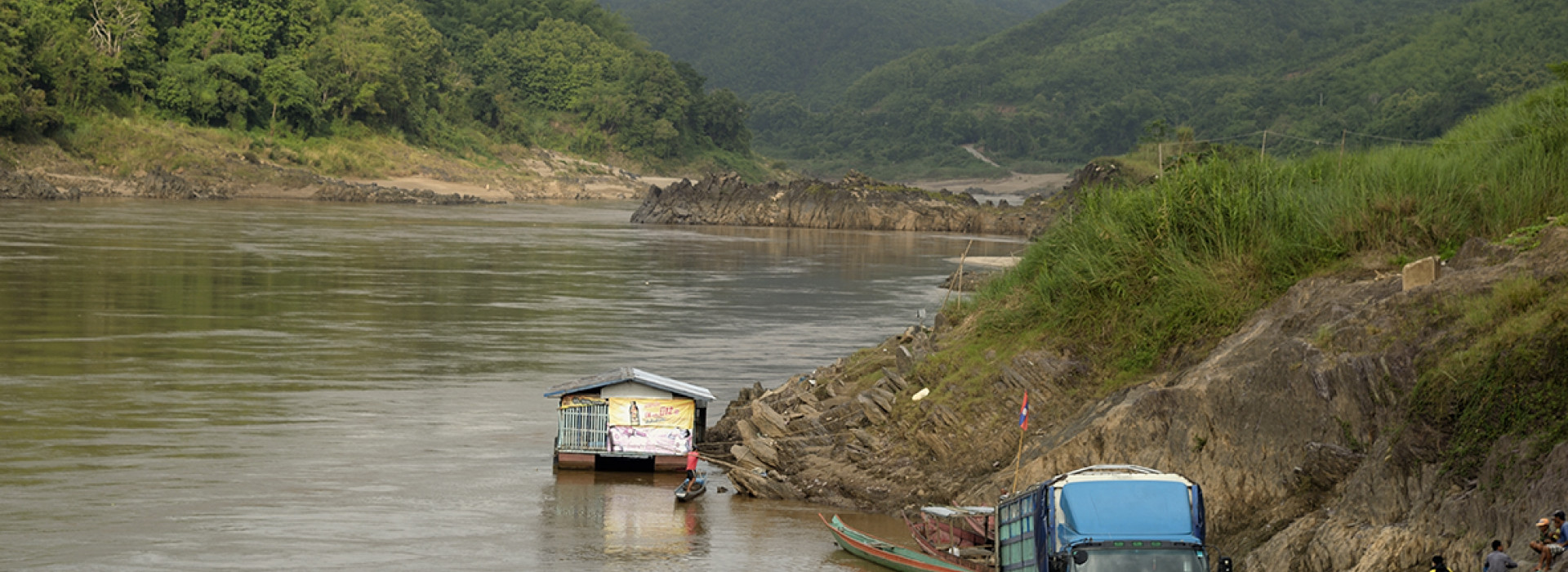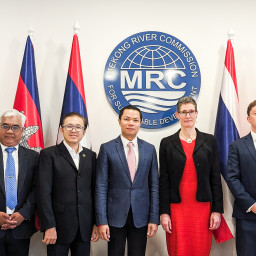Pak Beng consultation: Indispensable and effective despite gaps
Official consultation on the Pak Beng Hydropower Project in Oudomxay Province of Laos, a major infrastructure project on the Mekong mainstream, is approaching the end of its six-month prior consultation (PC) process of the Mekong River Commission (MRC). During this period, a lot have been happening from technical reviews of the project to regional as well as national consultations. Data and information submitted from developers were imperfect, but considerable value-added factors were realised throughout this water diplomacy process. MRC member countries and stakeholders have raised their views that would form the basis of a joint action plan for further dialogue and engagement to make the project minimise and mitigate potential adverse transboundary impacts.
Overall, despite limits and challenges, we fully believe the consultation process for Pak Beng was unique, indispensable and effective for the following reasons.
Transparent sharing of information to the public. Stakeholders have acknowledged that without the PC process, a massive volume of documents from feasibility studies to impact assessments and operation plans of the Pak Beng project would never enter the public space. In terms of sharing of information, the MRC is ahead of developing basins all over the world. Although time is a constraint in terms of reviewing the documents, the fact that this information is made available is testament to the commitment of the proposing country to fulfill its obligations under the 1995 Mekong Agreement.
Broader stakeholder engagement. In addition to technical meetings of the Joint Committee Working Group and national stakeholder meetings, the MRC Secretariat has worked hard to reach out to, bring in and consult broader stakeholders in two regional stakeholder forums in February and May this year. The MRC stakeholder engagement follows best international principles and practices embedded in international conventions and the International Association of Public Participation. Informal dialogues were held, project documents were shared early, all relevant stakeholders at the regional level were invited openly (the Lao government did not check or bar anyone from participating), facilitation was carefully crafted to ensure all voices were heard, key concerns were documented and fed into the process. Independent surveys stated high level of stakeholder satisfaction with the engagement process.
Technical review of the project. Without the PC process, a big project such as Pak Beng on the mainstream of a major international river like the Mekong would not have been subjected to “a second opinion”. Nowhere in the world is there a requirement for a sovereign country to submit their project in their territory to review by other countries and stakeholders. In the PC process for Pak Beng, the MRC specialists and international experts reviewed the project documents to determine the projects’ compliance with the MRC’s design guidance on mainstream dams and to recommend measures for minimising and mitigating potential transboundary negative impacts. In its technical review, the MRC noted issues regarding the design and potential adverse impacts to Thailand, fish passage, downstream sediment transport, navigation lock design, and aquatic habitats. The MRC technical assessment findings were released to the public before the second regional stakeholder forum on 5 May, ahead of any other assessments. The methodology for review was also made transparent at the first forum in February with MRC inviting stakeholders to review and provide inputs to the approach.
We acknowledge that the technical review of Pak Beng has been limited to feasibility design documents submitted by the developer. The MRC has taken note of the explanations by the Lao government and developer during the consultation, including additional information submitted, and look forward to further dialogue and follow up on our recommendations.
Post consultation and engagement. Will the end of the six months period be the end of the process? Not quite. It is hoped that the Joint Committee Special Session at the end of June will provide a clear message on the conclusion of the process and task the Secretariat to develop a Joint Action Plan that will frame the Post consultation. So far there has been commitment from all parties in ‘continuing the conversation’ with the proposing country and developer after the official PC period with the view that ongoing communication and discussion could enhance the final project design, improve environmental, social, and transboundary outcomes and be more cost effective for the developer.
For the above reasons, the Prior Consultation process works and the MRC is living up to its mandate of ensuring the sustainability of the Mekong.
Pham Tuan Phan is the Chief Executive Officer, An Pich Hatda is the Director of Planning and Anoulak Kittikhoun is the Chief Strategy & Partnership Officer, all from the Mekong River Commission.





